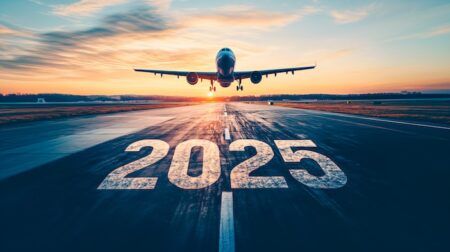With the impending shortage of pilots and licensed aircraft engineers in the aviation industry, the time has come when commercial airlines, business jet and helicopter operators must begin to engage the experts. According to a study conducted by Boeing, the global airline industry is likely to experience a deficit of over half a million pilots in the next 20 years. The study indicates that around 27,000 qualified pilots will be required each year to meet the demand for increased international air travel, but with so much competition for the attention of qualified staff, how will airlines draw in the best candidates for vacant positions?
As the shortage of staff (most predominantly pilots and licensed aircraft engineers) continues to rise, it has become more and more difficult for business to identify the best talents. The Wall Street Journal identifies 50 as the average age for a fully licensed commercial airline pilot. However, with the best emerging talents, a company will take less time to bring out the best in their successful candidates.
So what’s the solution?
There have been stop gap solutions found in some cases for example, Great Lakes Airways in the US had 10 seats removed from its Beechcraft 1900 in an attempt to allow recruitment of pilots without the 1,500 minimum hours flying time, and then trained them up. Clever tricks aside, raising the mandatory retirement age has also been discussed (although this brings about its own issues such as “fit to fly” examinations), but even if those potential ideas were implemented across the board, they are not long-term solutions. In addition, finding even less qualified talents whatever their age is tricky, and there are a variety of reasons why specialist recruitment agencies for the industry are fast becoming the best option for operators facing this looming crisis.
Where are all the staff?
Operators looking to recruit need to use all the resources available to them when looking for prospective candidates, but having exhausted the likes of LinkedIn and their own network, many would do well to contact the specialist recruitment consultancies within the aviation job search market. Professional aviation recruitment consultancies are becoming more and more important, for a variety of different reasons some of which are discussed below.
A global reach
While companies have a whole host of other jobs to take care of, particularly when it comes to HR, it’s easy to see the value of contacting a specialist agency, whose only job it is to find candidates that match company vacancies. Respected aviation recruitment agencies have earned their position in the market, and have their finger on the pulse of where candidates can be sourced from, and as more and more are looking abroad for candidates, working with an agency that has experience in many different international job markets can only be a positive step.
Pre-screening applicants
When positions need to be filled quickly, it’s often the case that sorting through CVs and pre-screening potential candidates can slow the process, but using a specialist and experienced agency can ensure that the only applications that cross a busy prospective employers desk are the ones that are best suited to the roles. How many times have companies been impressed with an applicant, only to find that they’re not willing to bend to the terms and conditions of the job? It adds up to a lot of time (and money) wasted that can be cut by letting the agency take on this responsibility.
Although the pressure is definitely on when it comes to finding suitable candidates for the growing number of pilot and licensed engineer vacancies, with the help of a specialist agency, the pain may not be felt by every operator.
William Finden is managing director at Oaklands Global, an aviation recruitment company based in England




